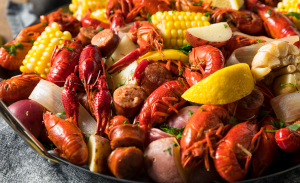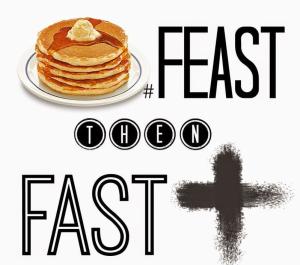
Here’s “The Skinny on Fat Tuesday!” Fat Tuesday, also known as Mardi Gras, is an internationally celebrated day filled with vibrant parades, extravagant costumes, and feasts. This festive occasion, marked by its rich history and cultural significance, has become synonymous with revelry and indulgence. Let’s delve into the origins, traditions, and contemporary celebrations that define this holiday.

A Feast for the Senses: Origins of Fat Tuesday
The roots of Fat Tuesday can be traced back to ancient pagan celebrations which were later assimilated into Christian traditions. The term itself refers to the practice of indulging in rich, fatty foods before Lent begins. In Christian theology, Lent is a season of repentance and fasting leading up to Easter Sunday. Fat Tuesday, therefore, serves as a final opportunity to indulge before the 40-day period of self-discipline.

The Symbolism Behind Fat Tuesday
Fat Tuesday holds symbolic significance beyond its association with indulgence and excess. It represents a celebration of life’s pleasures, a moment of unbridled joy before the solemnity of Lent. The elaborate costumes, vibrant music, and dances reflect the exuberance of the human spirit, a sense of community, and togetherness.

From Venice to New Orleans: A Global Celebration
While Fat Tuesday is most famously celebrated in New Orleans with its iconic Mardi Gras parade, similar festivities take place around the world. In Venice, Italy, revelers don ornate masks and costumes for the annual Carnevale di Venezia, a two-week-long extravaganza featuring masquerade balls and street performances. In Brazil, the city of Rio de Janeiro hosts the world’s largest Carnival celebration, attracting millions of visitors with its samba parades and street parties.

Fat Tuesday in the Big Easy
New Orleans, Louisiana, sometimes referred to as “The Big Easy,” drawing visitors from far and wide to experience its legendary Mardi Gras festivities. The city’s vibrant street parades, adorned with colorful floats and marching bands, captivate spectators of all ages. Revelers don elaborate costumes and masks, joining in the revelry with beads, trinkets, and shouts of “Laissez les bons temps rouler!” (Let the good times roll).

Culinary Delights
No celebration of Fat Tuesday would be complete without indulging in a decadent feast of traditional dishes. In New Orleans, culinary delights such as gumbo, jambalaya, and king cake take center stage, tantalizing taste buds with their bold flavors and spicy aromas. King cake, a sweet pastry adorned with colorful icing and a hidden trinket, holds special significance during Mardi Gras festivities, symbolizing luck and prosperity for the coming year.

Embracing Tradition
While each region may have its own traditions and culinary specialties, the spirit of Fat Tuesday remains universal. Whether it’s enjoying pancakes in the United Kingdom, feasting on fasnachts in Germany, or savoring beignets in France, people around the world come together to celebrate the joy of life and community.

Churches and Shrove Tuesday
Through the years, Fat Tuesday indulgence has been seen as sinful by some in the church community. Indeed, there are plenty of fleshly temptations in places where Mardi Gras is celebrated. Other Christian churches have seen it as a time to show love and reach out to the community where they reside. After all, there are other names besides Mardi Gras or Fat Tuesday. How about Pancake Day? Those are more traditional names for the feast day prior to the first day of Lent, formally called Ash Wednesday. Another name is “Shrove Tuesday.” Lent is a time of fasting and, traditionally, in certain communities of faith people went to their church for confession. There, their priest listened to their confession and absolved them from their sins, which was in olden times called “shriven.”
The Word For Mardi Gras is “More!”
Fat Tuesday is about more: More fun, more food, more celebration! That is exactly where people of faith have seen a chance to say that they like to have fun as well. Some combine evangelistic outreaches during the celebrations. Others, though, have decided that the best witness is to follow the words of Jesus and “Love your neighbor as yourself” (Mark 12:31). The world can do with more love and less condemnation. John 3:17 tells us “For God did not send his Son into the world to condemn the world, but to save the world through him.” More love, more grace, more faith, more jambalaya


















